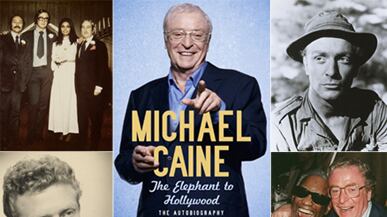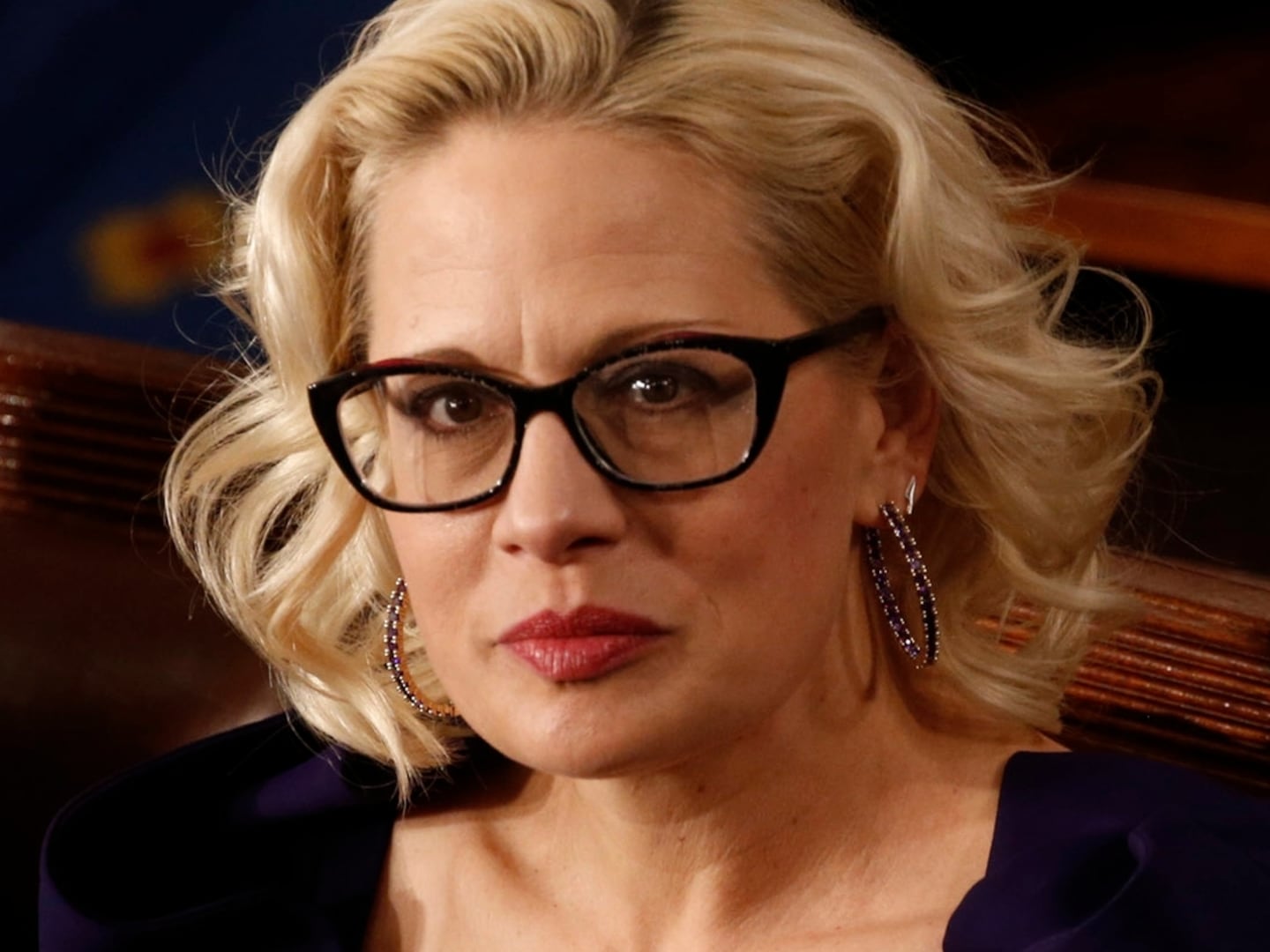Nothing is forever. If you’re an actor who’s lucky enough to become a movie star, the best you can hope for is that one day, when the leading roles dry up, you’ll still get to play someone’s dad—or the butler.
For Michael Caine, who rose to stardom with films like Zulu and Alfie, the realization that this was what the future held came in the early '90s, when he was approached to do a movie, and proceeded to give the producer a slew of notes on a character he wasn’t even being considered for. “No, no,” the producer told him. “You’re not the lover. I want you to read the part of the father.”
Gallery: Michael Caine

Caine was appalled. “The father? Me?” he thought.
Caine headed into the bathroom, looked in the mirror, and saw that this was exactly who was staring back at him. “I realized the only girl I’d ever get to kiss in a film again would be my daughter,” is how he recalls it now.
It could have caused him to retreat. As he says by phone, “What happens with actors is they say ‘I’m a movie star, I’m not going to do it,' and they just leave the business. They’re over.”
Instead, Caine began saying yes to all sorts of things that he might previously not have considered and the result is one of the most prolific third acts in modern film history, with appearances in Oscar fare ( The Cider House Rules and Quills), blockbuster action bonanzas ( Inception and The Dark Knight—where he plays, yes, the butler), and occasionally, the simply terrible (1994’s On Deadly Ground with Steven Seagal).
No matter. As Caine, 77, tells it, he’s never had a big problem doing a turkey so long as the money’s OK, and he’s playing a supporting role and not the lead. “That way you can't be blamed for its failure,” Caine says.
In 1987, Caine missed the chance to accept his Oscar for Hannah and Her Sisters because he was off filming Jaws 4. “I haven’t seen it, but I did see the house it bought for my mother and it was very beautiful,” he says. “They said here’s a million bucks for a week’s work. It’s fine.”
This is Caine, candid and forthright, with seemingly no interest in complaining about anything that’s ever happened to him.
How could he, really?

In addition to winning two Oscars (the other was for The Cider House Rules; all in all, he has been nominated six times), he’s made tens of millions of dollars, had two children who appear to have turned out just fine, and had a famously great mariage to his wife of 37 years. He was even knighted in 2000. No wonder his new book The Elephant to Hollywood, (a sequel of sorts of to his 1992 memoir What’s It All About) betrays little of the self-pity that plagues so many other celebrity memoirs.
In fact, unlike so many other famous people, Caine didn’t even hire a ghost writer. “When I wrote the first one, I said to my editor ‘I’ve never written a book before, can you give me any advice?’ She said ‘Michael, you’re a storyteller, just write as if you’re telling a story.' And that’s what I did both times.”
The new book begins in 1992 with the story of how Caine realized he was no longer a movie star, then travels back in time to his hardscrabble childhood growing up in the Elephant and Castle district of Southeast London (as per the title) with a mother who was a house cleaner and a father who worked at the fish market. “There was never any money,” Caine tells me. “So with any bill collector, I opened the door and told them she wasn’t home. I always regard that as my first acting job.”
At 15, Caine left school, worked a string of odd jobs, then went into the army and was sent to Korea. Soon after he got back to England, he began working in the theater as a stage manager and an actor.
As Caine tells it in the book, he was frequently terrible, for example, forgetting his sole line in an early performance. Today, Caine wouldn't consider getting onstage. "Absolutely not," he says during the interview. "I regard the theater as a woman I loved dearly who treated me like dirt." Caine also got rejected from movies because people thought he looked as though he might be gay. “It happened to me several times,” he says. “The agent who dropped me was gay himself. Then I did Zulu and the producer cancelled my contract because I was tall and slim with long blond hair and I played an effete English officer. He said ‘I know you’re not actually gay, but you come across as if you are. It would be better if you were gay and came across as butch.’”
Still, Caine had something—the versatility to appear posh or working class, and the ability to turn his lack of machismo into an asset that fit the changing times. In 1965, he appeared in The Ipcress File, where he wore glasses and seduced the girl by cooking for her. A year later, he starred in Alfie, playing a man who beds every woman in sight.
By the time the movie became a worldwide phenomenon, there was some sense it was a case of art imitating life. Caine, however, says there was one crucial difference between him and his alleged alter ego. “The basic difference—I’m going to tell it to you straight—is that Alfie would make love to any girl no matter what she looked like. I was always out for the most beautiful women.”
In any event, Caine’s playboy years soon came to an end when he saw a Maxwell Coffee House ad featuring “the most beautiful woman I’d ever seen in my life.” He tracked her down, and quickly got married. Nearly four decades later, he and his wife Shakira are still together, splitting their time between London and the United States, where he seems to be in constant demand.
From time to time there were disappointments and health scares—movies he was emotionally invested in that didn’t succeed, the time his wife nearly died from a burst appendix.
And then, in 1992, shortly after the death of his mother, Caine got a call from a reporter at a British tabloid asking about a half-brother named David whom Caine never knew existed.
David was epileptic and brain damaged, living in a home for the disabled. Their mother, it turned out, had given birth to him before she met his father, and went to visit him every Monday. But as Caine tells it in the book, “We were at school and there was no reason to question [her absences] at all.”
“The basic difference—I’m going to tell it to you straight—is that Alfie would make love to any girl no matter what she looked like. I was always out for the most beautiful women.”
Caine harbors no ill will toward the reporter who broke the news. “I was very impressed by the way the paper handled it all,” he writes. “They rang me straightaway and they didn’t try to make anything salacious out of it.”
Indeed, it’s hard to find anything that Caine's bitter about. Asked if there’s anything he’d truly like to do in his life that he hasn’t accomplished yet, he quickly says, “Nothing. I’ve done everything.”
Plus: Check out Book Beast, for more news on hot titles and authors and excerpts from the latest books.
Jacob Bernstein is a senior reporter at The Daily Beast. He has also written for New York magazine, Paper, and The Huffington Post.






